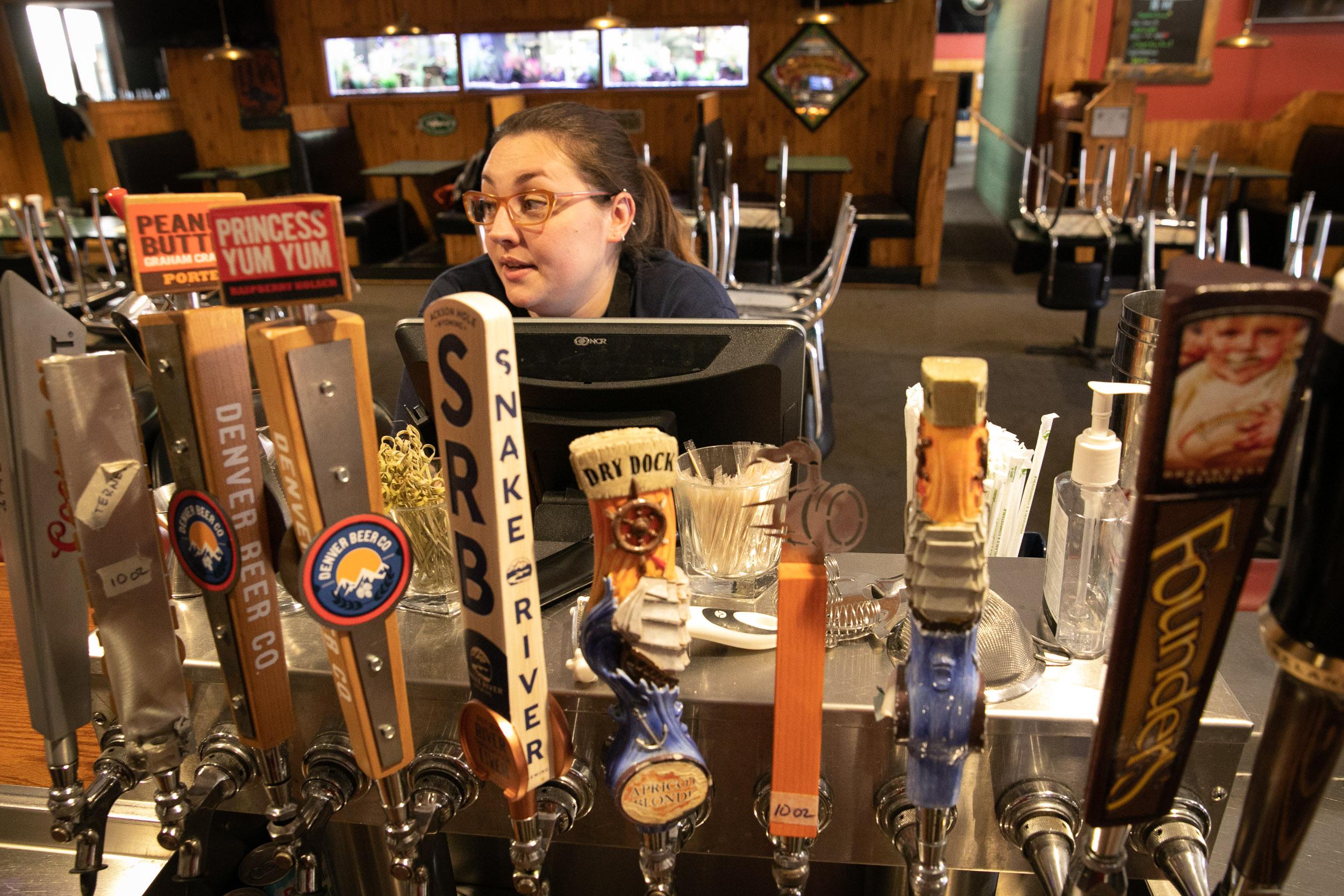
A smaller than usual crowd of diners quietly chatted as they ate the last dinner served at popular Denver restaurant Cherry Cricket for the foreseeable future on Monday.
Some staff teared up as they commiserated with customers. They had found out earlier Monday that many of them are now out of a job.
One patron tipped a bartender $1000.
On Monday, Gov. Jared Polis ordered all restaurants and bars to stop dine-in service for at least 30 days. In Denver, Mayor Michael Hancock ordered closures through May 11.
In response, Breckenridge Wynkoop Restaurant Group, a company that operates a half-dozen restaurants in Colorado including the Cherry Cricket and Wynkoop Brewing in Denver, laid off about 500 employees.
Co-owner Lee Driscoll said that's about 90 percent of employees. They are furloughed with the thought that perhaps they'll get their jobs back at some point.
"I can't see that the majority of restaurant businesses will survive and be able to open again in eight weeks or 10 weeks or whatever it is without some form of financial relief or forbearance from the state," Driscoll said.
Polis estimated around 240,000 Colorado service industry workers will be affected by these closures.
Driscoll thinks his business will be able to survive and may be able to offer emergency loans to some employees. But the biggest problem facing them, he said, is the expected delay in unemployment benefits. He said he's been told the current estimate is four to six weeks.
"People in our industry work very close to their financial limits," Driscoll said. "That can be week to week. So what's critically important is that the governor finds a way to expedite that process, to get those benefits to people in the service industry who are going to be unemployed now."
Some employees are staying on to complete take-out and delivery orders, which are both still allowed by the state.
The last two days were marked with confusion for Linda Allour. She and her husband own Daylight Donuts in Dacono, Colorado.
Her shop is in a kind of grey area since they mostly do take-out orders anyway.
She said her husband was on the phone with the Centers for Disease Control and Prevention for almost an hour Monday night to determine what the store could do to stay open.
Allour has taken down the self-service coffee station in the donut shop and started allowing only one customer in at a time to maintain 6 feet of social distancing.
Her husband is 62, making him at higher risk for contracting a dangerous case of COVID-19. He usually works the evening shift cooking and serving customers. Now, Daylight Donuts will close at 5 when his shift would normally begin.
"My concern is people won't understand that I can be open and they won't come at all," Allour said.
She said business has slowed because schools and offices are closed. Many of her customers buy donuts for their clients, but not anymore.
"If they're not working, there's no one to buy donuts for," Allour said. "So even though I'm open, my customer base is affected."
Daylight has one employee. Allour said she plans to keep that employee on payroll and working as long as she can.
Allour hopes people who are healthy and practice good hygiene continue to get takeout as much as they can to support small businesses like hers.
Other small businesses are trying to balance the safety of their employees and customers with their need to keep bringing in business.
Jim Noon owns Centennial Container, a company that sells shipping boxes.
He has about 20 employees who are all still working, but sales workers are no longer making in-person sales calls. When someone comes to pick up an order, they wipe down all surfaces.
"The hardest part is we really don't know if there's anything on the products and we sell cardboard boxes, so it's not possible to open up a pallet of boxes and wipe down every box," Noon said.
Noon said their products sit in the warehouse for anywhere between two weeks and a year. Experts said the virus doesn't survive long outside of the human body, but it's unclear how long the virus can live on surfaces like cardboard.
"We're worried about everybody's health and safety as primary and you kind of feel bad thinking about what's that going to do to the money but you can't help but think about that too," Noon said, "Because if you can't write their paychecks, then you can't write their paychecks."
Noon said he could handle the slow in business for another two weeks, but if it goes on for two months, his business in trouble.
"Everyone's just nervous and it's the unknown that's the scariest," he said. "Employees don't know if they're going to have a job. I don't know if I'm going to be able to pay them."









